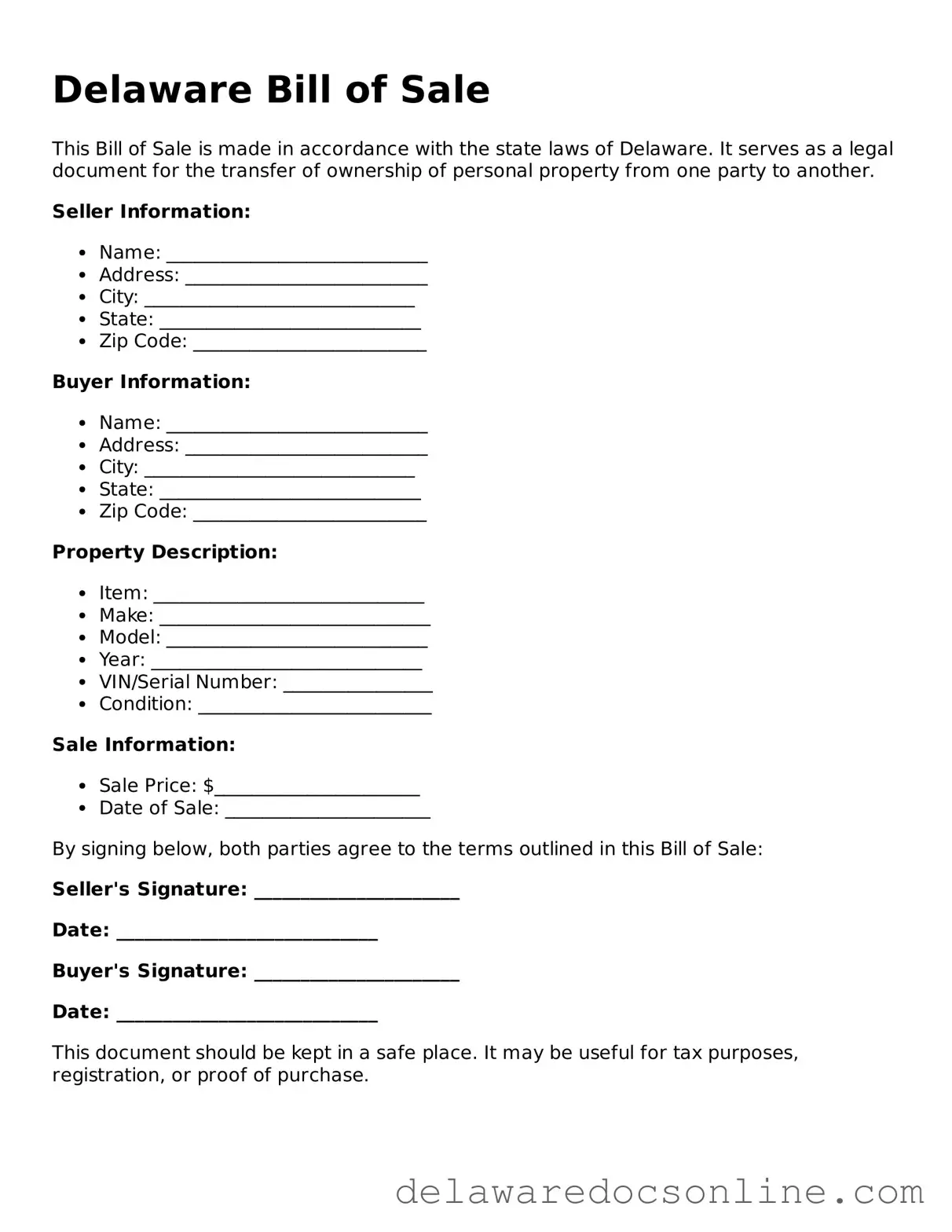Attorney-Verified Bill of Sale Document for Delaware
A Delaware Bill of Sale form is a legal document that serves as proof of the transfer of ownership of personal property from one individual to another. This form outlines essential details such as the description of the item, the sale price, and the names of both the buyer and the seller. Utilizing this form helps ensure a clear record of the transaction, protecting the interests of both parties involved.
Make Your Bill of Sale Now

Attorney-Verified Bill of Sale Document for Delaware
Make Your Bill of Sale Now

Make Your Bill of Sale Now
or
⇓ PDF File
Need speed? Complete the form now
Edit, save, download — finish Bill of Sale online with ease.